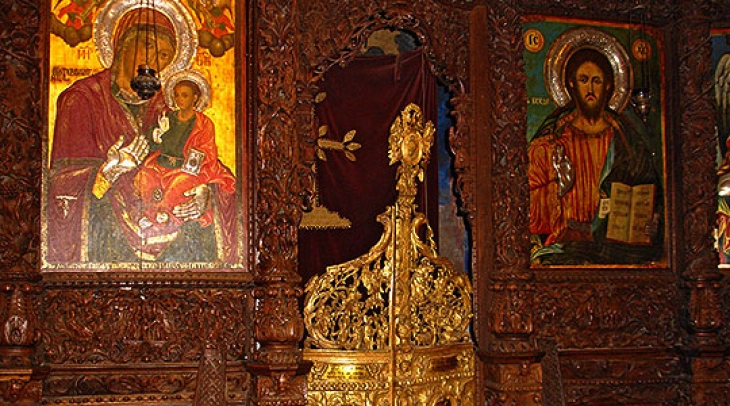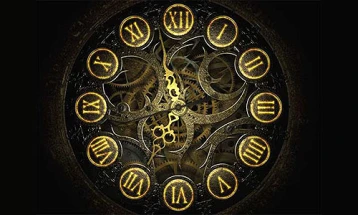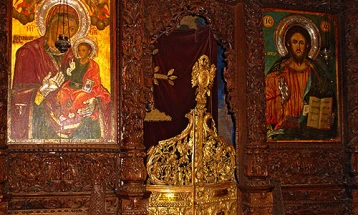Religious calendars
- 15 October 2024 (MIA)

15 October 2024 (MIA)
Macedonian Orthodox Church Calendar
The Hieromartyr Cyprian and the Virgin Justina
Cyprian moved from Carthage to Antioch, where Justina lived with her parents, Edesius and Cleodonia. Edesius was an idolatrous priest and his whole household was pagan, but when Justina, going round the Christian churches, came to know the true Faith, she brought both her father and mother to Christ the Lord and all three were baptised by the bishop, Optatus. Cyprian was a magician, and had links with unclean spirits and powers of divination. A dissolute youth Aglaidas, a pagan, tried to lead Justina astray, being enraptured by her beauty, and, when the holy maiden firmly rejected him, sought Cyprian’s help. Cyprian invoked evil spirits, one after the other, on Justina, to set alight in her the passion of impurity towards Aglaidas, but they were totally unsuccessful in this, for St Justina, with the sign of the Cross and prayer to God, drove out the evil spirits. Then Cyprian came to know the power of the Cross, and was himself baptised, in time becoming priest and bishop. The wicked pagans seized both him and Justina, and they were sent for trial to Damascus, and then tortured and beheaded in Nicomedia at the end of the third century.
Catholic Calendar
St. Teresa of Avila, Doctor of the Church
Less than twenty years before Teresa was born in 1515, Columbus opened up the Western Hemisphere to European colonisation. Two years after she was born, Luther started the Protestant Reformation. Out of all of this change came Teresa pointing the way from outer turmoil to inner peace. Teresa suffered the same problem that Francis of Assisi did — she was too charming. Everyone liked her and she liked to be liked. She found it too easy to slip into a worldly life and ignore God. The convent encouraged her to have visitors to whom she would teach mental prayer because their gifts helped the community economy. But Teresa got more involved in flattery, vanity and gossip than spiritual guidance. These weren’t great sins perhaps but they kept her from God. Then Teresa fell ill with malaria. When she had a seizure, people were so sure she was dead that after she woke up four days later she learned they had dug a grave for her. Afterwards she was paralysed for three years and was never completely well. Yet instead of helping her spiritually, her sickness became an excuse to stop her prayer completely: she couldn’t be alone enough, she wasn’t healthy enough, and so forth. Later she would say, “Prayer is an act of love, words are not needed. Even if sickness distracts from thoughts, all that is needed is the will to love.” In 1582, she was invited to found a convent by an Archbishop but when she arrived in the middle of the pouring rain, he ordered her to leave. “And the weather so delightful too” was Teresa’s comment. Though very ill, she was commanded to attend a noblewoman giving birth. By the time they got there, the baby had already arrived so, as Teresa said, “The saint won’t be needed after all.” Too ill to leave, she died on October 4 at the age of 67. She is the founder of the Discalced Carmelites. In 1970 she was declared a Doctor of the Church for her writing and teaching on prayer, one of two women to be honoured in this way. St. Teresa is the patron saint of Headache sufferers. Her symbol is a heart, an arrow, and a book. She was canonised in 1622.







